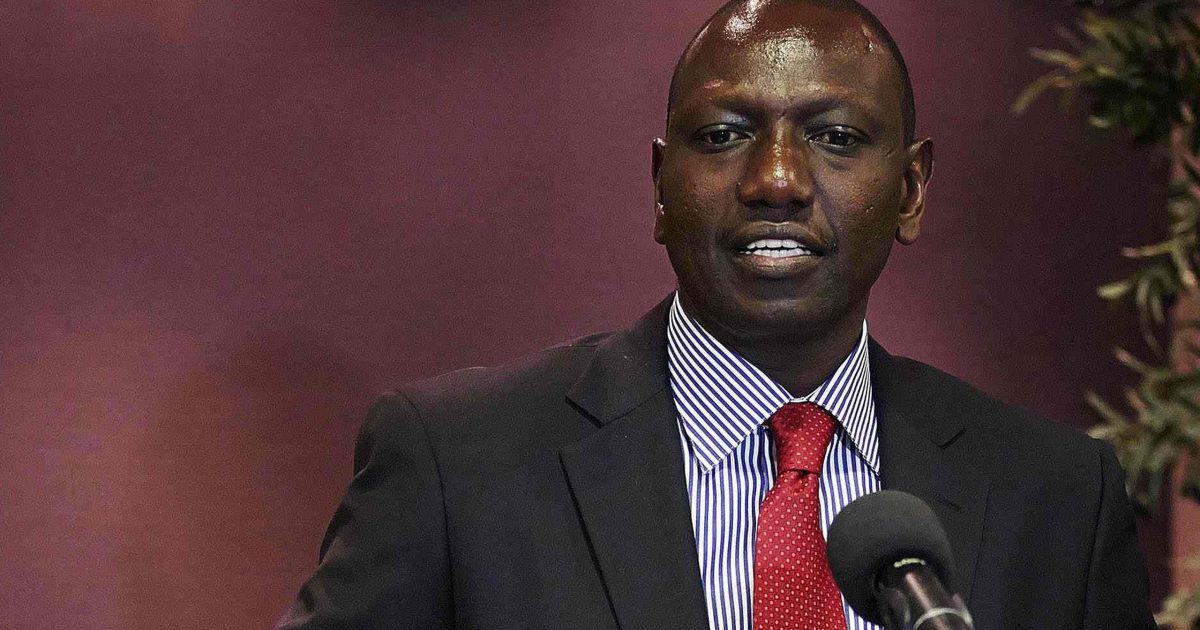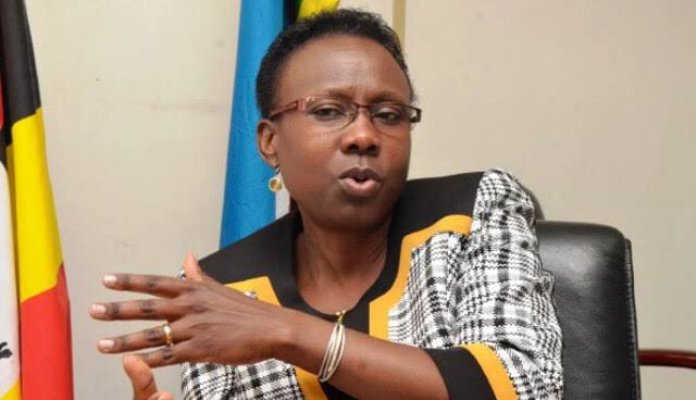How much is Kenyan Deputy President William Ruto worth? That question took about two minutes of an interview Dr Ruto did with the BBC that was aired on Tuesdayand Kenya’s second-in-command just fell short of saying he would not reveal the extent of his wealth.
In a wide-ranging conversation with BBC’s Stephen Sackur, who hosts the HARDtalk show, Mr Ruto also defended the Jubilee government’s efforts to fight corruption and Kenya’s ability to fight Al-Shabaab terrorists.
But it is the question on wealth that was the most heated, with Mr Ruto accusing his host of not doing his homework. Below is the excerpt.
SACKUR: Why have you not followed the President’s instruction in what he calls a lifestyle audit to actually go public with all your wealth and assets, itemise all of it and show it to the Kenyan public. You haven’t done it, have you?
RUTO: For the record, I’m the only politician in Kenya who has been subjected to a lifestyle audit. No other politician has.
SACKUR: Can we now see the audit? Have you made it public?
RUTO: The audit was done by the media. It is in public domain. In fact, what has happened is that there is … at the moment, we are all working on getting a legal framework where a lifestyle audit can be conducted on every public servant, starting from the President.
SACKUR: This has nothing to do with the media. This is a form that all public officials are supposed to file, giving all of their assets and their sources. I would like to see it.
RUTO: For you information, Sackur, you are behind the news on that matter. Every public figure, by law, is supposed to submit a list of assets and liabilities to the Speaker of the National Assembly. That I have done. The media has gone further to carry a lifestyle audit on William Ruto, the only politician who has been subjected to lifestyle audit by the media.
SACKUR: When you did the sums and you categorised all of your assets, how much were you worth?
RUTO: That information is available in the public domain.
SACKUR: Great. Tell…
RUTO: You should have done some research before you came.
SACKUR: But if it’s in the public domain, it’s not a secret. So, tell me how much are you worth?
RUTO: It is in public domain. I encourage you to google and find out what William Ruto owns.
SACKUR: Will you or will you not tell me, given that you’ve been completely open and public with it and that every Kenyan knows this figure, according to you. Share it with me.
RUTO: I encourage you, Sackur, to go to the website on Parliament and get that information.
SACKUR: So, you are not prepared to tell me how much you are worth.
RUTO: I am prepared to tell you where to find the information, Sackur.
SACKUR: Do you think that position you are taking with me makes any sense?
RUTO: Of course, it does. It doesn’t make sense to you?
GRAFT FIGHT
The question of Mr Ruto being perceived as one of the most corrupt Kenyan politicians was also floated, but the DP answered that the Ipsos survey also named President Uhuru Kenyatta, former Prime Minister Raila Odinga and “largely, all the political leaders that exist today in Kenya”.
Mr Ruto said the issue of corruption in Kenya has been politicised and that is why politicians are mostly the ones linked to graft by the public.
But his interviewer interjected, saying the Ipsos survey reveals that Kenyans do not trust their leaders on their promises to fight corruption.
INTERVIEW EXCERPT
SACKUR: Let us talk about the security situation in Kenya. Last month saw another jihadist attack in Nairobi.
Fifteen[21] people were murdered. Why is the Kenyan government seemingly incapable of eliminating the threat posed by Al-Shabaab and the jihadists?
RUTO: Terrorism is an international challenge. No country in the world has ever claimed to eliminate terrorism. We keep working on it. What I can tell you, Stephen, is that we are getting better at dealing with this challenge. If the response of the Dusit D2 attack was anything to go by, the response time was seven minutes, all systems were there. In fact, in our opinion, we scuttled what these characters wanted to achieve and minimised what they managed to achieve.
SACKUR: Is it true, as reported in the Kenyan media, that there were multiple warnings passed to your government in the months before the January 15 attack?
RUTO: These are routine alerts, and we took those alerts seriously. And we continue to take alerts seriously and that’s why we have managed to contain that situation to a minimum.
SACKUR: You referred to Kenya’s commitment to the UN presence in Somalia and of course Kenya launched its own massive military operation inside Somalia in 2011. So, for many years, Kenya has been committed to trying to deliver security in Somalia. It has to be said that all of those years, all of the resources and the commitment, it’s not working. So, what is your long-term strategy for Somalia?
RUTO: We have taken the position that this is not a Kenyan decision to make. This is a Kenyan and international decision. We are responsible partners under Amisom. We will work with other countries, the initiative under the UN, to make sure we secure Somalia. We have vested interest as Kenya because these are our neighbours.
SACKUR: If I may shorthand it, you are telling me that your military commitment in Somalia is open-ended; indefinite.
RUTO: It is indefinite until we are certain that Somalia is safe. Until Somalia is safe, it will be reckless for us to walk away from a threat that threatens our country.
-Agencies





